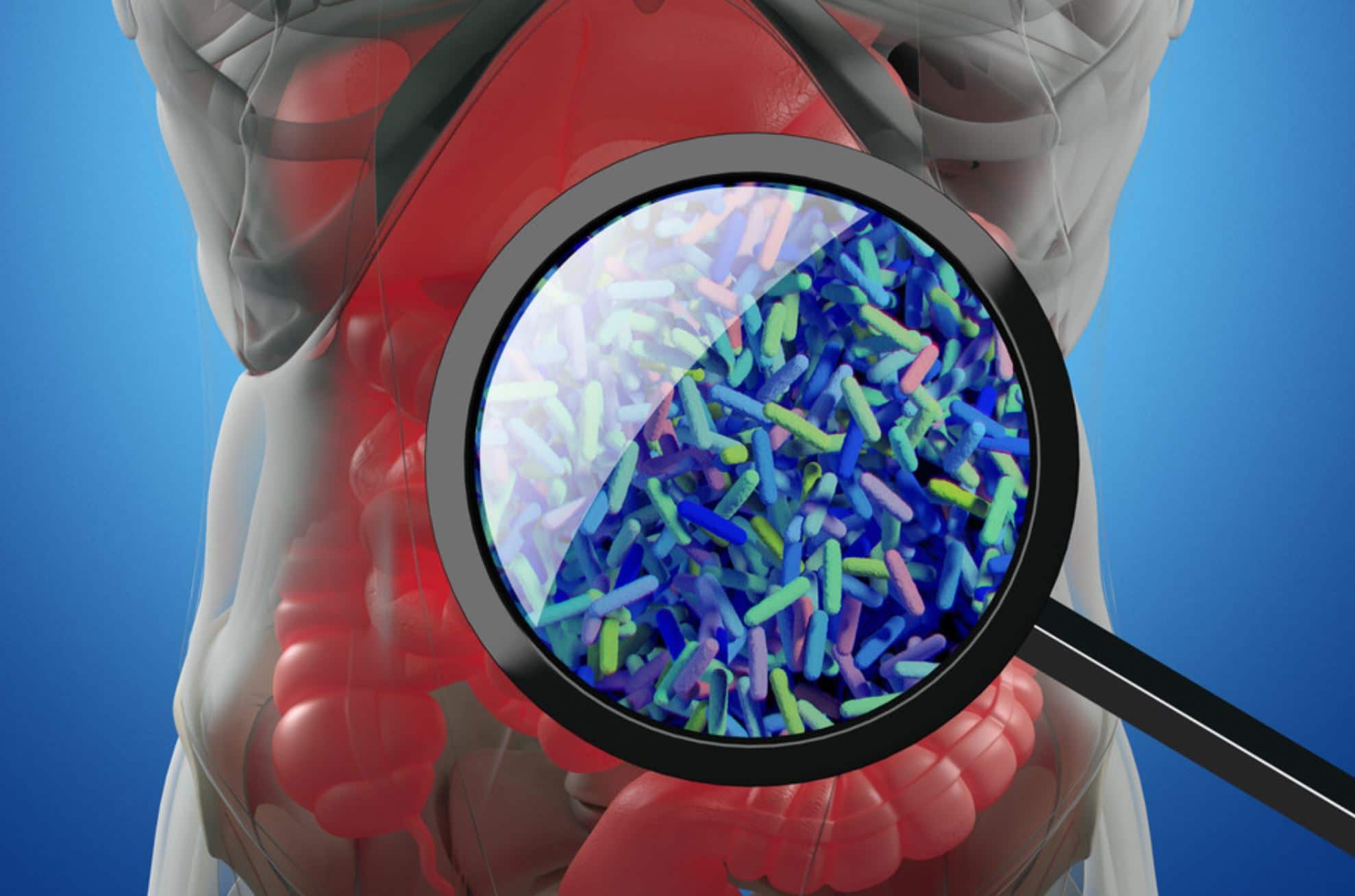(Natural Blaze) A food additive found in more than 900 food products such as chewing gum and mayonnaise has an impact on the gut microbiota which could trigger diseases. University of Sydney research provides new evidence that nanoparticles, which are present in many food items, may have a substantial and harmful influence on human health.
Related What’s in Your Gut? Scientists Have Mapped the Gut Microbiome Landscape
by Staff Writer, May 13th, 2019
The study investigated the health impacts of food additive E171 (titanium dioxide nanoparticles) which is commonly used in high quantities in foods and some medicines as a whitening agent. Found in more than 900 food products such as chewing gum and mayonnaise, E171 is consumed in high proportion everyday by the general population.
Published in Frontiers in Nutrition, the mice study found that consumption of food containing E171 has an impact on the gut microbiota (defined by the trillions of bacteria that inhabit the gut) which could trigger diseases such as inflammatory bowel diseases and colorectal cancer.
Co-lead author Associate Professor Wojciech Chrzanowski said the study added substantially to a body of work on nanoparticle toxicity and safety and their impact on health and environment.
“The aim of this research is to stimulate discussions on new standards and regulations to ensure safe use of nanoparticles in Australia and globally,” he said.
While nanoparticles have been commonly used in medicines, foods, clothing, and other applications, the possible impacts of nanoparticles, especially their long term effects, are still poorly understood.
Titanium dioxide consumption has considerably increased in the last decade and has already been linked to several medical conditions, and although it is approved in food, there is insufficient evidence about its safety.
Increasing rates of dementia, auto-immune diseases, cancer metastasis, eczema, asthma, and autism are among a growing list of diseases that have been linked to soaring exposure to nanoparticles.
“It is well established that dietary composition has an impact on physiology and health, yet the role of food additives is poorly understood,” said Associate Professor Chrzanowski, a nanotoxicology expert from the University of Sydney’s School of Pharmacy and Sydney Nano Institute.
Buy Book Linus Pauling: Scientist and Peacemaker (Unified Theory to Cure Heart Disease)
“There is increasing evidence that continuous exposure to nanoparticles has an impact on gut microbiota composition, and since gut microbiota is a gate keeper of our health, any changes to its function have an influence on overall health.”
“This study presents pivotal evidence that consumption of food containing food additive E171 (titanium dioxide) affects gut microbiota as well as inflammation in the gut, which could lead to diseases such as inflammatory bowel diseases and colorectal cancer,” he said.
Co-lead author Associate Professor Laurence Macia from the University of Sydney said: “Our research showed that titanium dioxide interacts with bacteria in the gut and impairs some of their functions which may result in the development of diseases. We are saying that its consumption should be better regulated by food authorities.”
“This study investigated effects of titanium dioxide on gut health in mice and found that titanium dioxide did not change the composition of gut microbiota, but instead it affected bacteria activity and promoted their growth in a form of undesired biofilm. Biofilms are bacteria that stick together and the formation of biofilm has been reported in diseases such as colorectal cancer,” said Associate Professor Macia, who is an immunologist expert on the impacts of the gut and gut microbiota on health from the Faculty of Medicine and Health and the Charles Perkins Centre.
Buy CQ10 Heart Healthy Brain Boosting Energy Supplement
Stillness in the Storm Editor: Why did we post this?
In the modern world, we normally like to think we are highly advanced; and therefore, we must lead unquestionably better lives than our ancestors. And yet, we still suffer quite a bit. Contrary to popular belief, technology and industrial advances have not always resulted in positive benefits for life, looking to all domains of analysis in support. The preceding information alerts the public to the fact health has indeed been compromised by things we as a society have allowed to occur. Our ignorance, while providing a modicum of subjective bliss, comes at a heavy price for ourselves and our children. However, the mainstream medical establishment ignores these obvious contributors to poor health, partially because the current medical system isn’t interested in making people as healthy as they could be, they’re interested in treating disease to make profits. As such, in order to ensure a steady supply of sick people to treat, the primary causes of many health conditions are never truly recognized. But with the power of truth in hand, particularly the benefit of an epistemic foundation of causality, one can properly identify the true causes of poor health, often environmental, and take steps to change so as to optimize wellbeing. In doing so, one alleviates stress, improves their health, and liberates the mind so as to focus on greater works of fulfillment, particularly those of an altruistic bent. Once one has been briefed on the truth about the for-profit medical system and its woefully inadequate and unethical practices, their freedom and justice-seeking urges can become dominant, leading to collective action that finally resolves the entire state of affairs, for the benefit of the individual and posterity.
– Justin
Not sure how to make sense of this? Want to learn how to discern like a pro? Read this essential guide to discernment, analysis of claims, and understanding the truth in a world of deception: 4 Key Steps of Discernment – Advanced Truth-Seeking Tools.
Stillness in the Storm Editor’s note: Did you find a spelling error or grammar mistake? Send an email to [email protected], with the error and suggested correction, along with the headline and url. Do you think this article needs an update? Or do you just have some feedback? Send us an email at [email protected]. Thank you for reading.
Source:

Leave a Reply